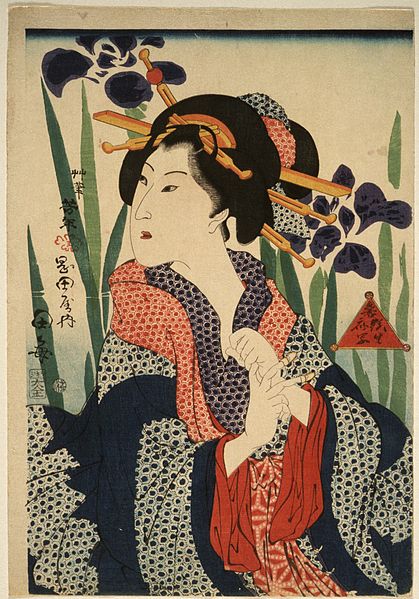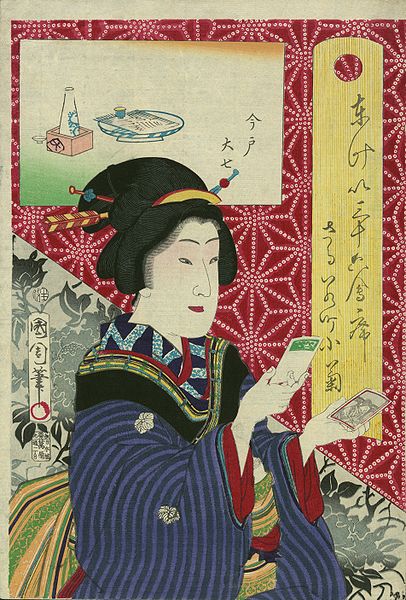![]()
Avoiding spelling mistakes.
Beauty
The noun beauty is a familiar word yet it is sometimes seen spelled wrong in Thai English as builty. We all know that beauty refers to something that is appealing to look at or otherwise admirable. The word beauty is familiar from the story Beauty and the Beast, first written as a fairy tale in France in the 1700s and later retold in many versions, including Disney musical films.
The Thammasat University Library owns different versions of Beauty and the Beast, including the recent Disney musical and also a non-musical film from the 1940s directed by Jean Cocteau. These may be seen at the Rewat Buddhinan Media Room on the U2 level of the Pridi Banomyong Library, Tha Prachan campus.
We can see that the concept of beauty is important for international scholarship and research. The TU Library owns over 200 books with the word beauty in their titles. These include 100,000 years of beauty; The abuse of beauty : aesthetics and the concept of art; Aesthetic labour: rethinking beauty politics in neoliberalism; Aesthetic order: a philosophy of order, beauty and art; The age of wonder: how the romantic generation discovered the beauty and terror of science; Alexander McQueen: savage beauty; Alvaro Siza: the function of beauty; Architecture and beauty: conversations with architects about a troubled relationship; Aromatherapy for the beauty therapist; Asian secrets of health, beauty, and relaxation; Beauty: a very short introduction; Beauty and business: commerce, gender, and culture in modern America and many others.
Obviously it is in our interest to remember how to spell the noun beauty correctly. Some traditional expressions in English also use the word beauty, such as beauty is in the eyes of the beholder. This means that different people consider different things as beautiful. Another such expression is that beauty is only skin-deep. This means that someon or something that is beautiful on the outside may not be beautiful inside.
Writers of Thai English who spell the noun beauty wrong as builty may be following two incorrect approaches. First, they may try to spell the word the way they think it is pronounced, and their pronunciation is far from standard English pronunciation. Also, they may be following the example of the adjective guilty, which also ends with the letters uilty. They may also be confusing the words beauty and building. If we compare the words beauty and guilty, we can see that there are reasons that they are not spelled the same way. In standard English pronunciation, the noun beauty is pronounced something like BEE-YOO-TEE. Whereas in standard English pronunciation, the adjective guilty is pronounced something like GILL-TEE. Naturally we would expect there to be spelling differences between words sounding like BEE-YOO-TEE and GILL-TEE. But when pronouncing Thai English, sometimes confusions happen and the word beauty is wrongly pronounced as something sounding like BILTY. There is no letter l in the word beauty and there should be no letter l in it when we pronounce it.
In standard English pronunciation, other words that rhyme with beauty include fruity, duty, and snooty. In addition to duty, other words ending with the letters uty, like beauty, include deputy, snouty, and pouty. If we try to make up a sentence to help us remember to link these words that have similar spellings together, we might arrive at:
The deputy, although he was feeling pouty, did his duty.
The snooty beauty refused to speak to the deputy.

The more we look closely at sentences with the word beauty written in them, the less likely we will be to spell the word wrong. So it is useful to see some of the most popular thoughts about beauty by noted writers, some of whom are represented in the collection of the TU Library:
- Things are beautiful if you love them.
Jean Anouilh, Mademoiselle Colombe (1950)
- Beauty, real beauty, is something very grave. If there is a God, He must be partly that.
Jean Anouilh, The Rehearsal (1950)
- Beauty is one of the rare things that do not lead to doubt of God.
Jean Anouilh, Becket, (1959)
- There is no excellent beauty that hath not some strangeness in the proportion.
Francis Bacon, Essays (1625), Of Beauty.
- Beauty’s of a fading nature—
Has a season and is gone!
Robert Burns, Will Ye Go and Marry Katie? (1764).
- Too often, though, the beauty that is thrust upon us is illusory and deceitful, superficial and blinding, leaving the onlooker dazed; instead of bringing him out of himself and opening him up to horizons of true freedom as it draws him aloft, it imprisons him within himself and further enslaves him, depriving him of hope and joy. It is a seductive but hypocritical beauty that rekindles desire, the will to power, to possess, and to dominate others, it is a beauty which soon turns into its opposite, taking on the guise of indecency, transgression or gratuitous provocation. Authentic beauty, however, unlocks the yearning of the human heart, the profound desire to know, to love, to go towards the Other, to reach for the Beyond.
Pope Benedict XVI, Meeting with artists, 21 November 2009.
- She had gained a reputation for beauty, and (which is often another thing) was beautiful.
Charles Dickens, Little Dorrit.
- It seems that if one is working from the point of view of getting beauty in one’s equations, and if one has really a sound insight, one is on a sure line of progress.
Paul Dirac, in “The Evolution of the Physicist’s Picture of Nature” in Scientific American (May 1963)
- Beauty would save the world.
Fyodor Dostoevsky, The Idiot (1868)
- The desire for truth so prominent in the quest of science, a reaching out of the spirit from its isolation to something beyond, a response to beauty in nature and art, an Inner Light of conviction and guidance—are these as much a part of our being as our sensitivity to sense impressions?
Arthur Eddington, Science and the Unseen World (1929)
- Although I am a typical loner in daily life, my consciousness of belonging to the invisible community of those who strive for truth, beauty, and justice has preserved me from feeling isolated.
Albert Einstein, in “My Credo”, a speech to the German League of Human Rights, Berlin (Autumn 1932)
- We fly to beauty as an asylum from the terrors of finite nature.
Ralph Waldo Emerson, The Poet.
- I wanted very much to learn to draw, for a reason that I kept to myself: I wanted to convey an emotion I have about the beauty of the world. It’s difficult to describe because it’s an emotion. It’s analogous to the feeling one has in religion that has to do with a god that controls everything in the whole universe: there’s a generality aspect that you feel when you think about how things that appear so different and behave so differently are all run “behind the scenes” by the same organization, the same physical laws. It’s an appreciation of the mathematical beauty of nature, of how she works inside; a realization that the phenomena we see result from the complexity of the inner workings between atoms; a feeling of how dramatic and wonderful it is. It’s a feeling of awe — of scientific awe — which I felt could be communicated through a drawing to someone who had also had this emotion. It could remind him, for a moment, of this feeling about the glories of the universe.
Richard Feynman, Surely You’re Joking, Mr. Feynman! (1985)
- A thing of beauty is a joy forever:Its loveliness increases; it will neverpass into nothingness.
John Keats, Endymion (1818),
- Beauty is truth, truth beauty, — that is allYe know on earth, and all ye need to know.
John Keats, Ode on a Grecian Urn.

(All images courtesy of Wikimedia Commons)
